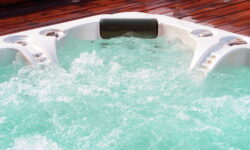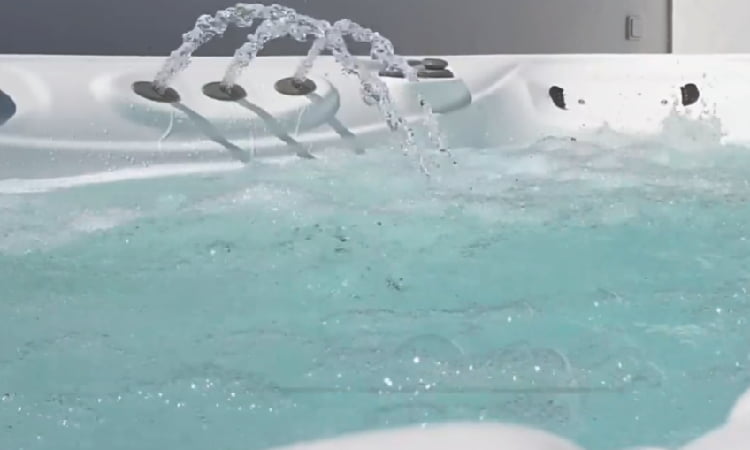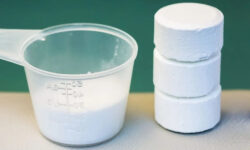You’re about to dip into your hot tub, but wait! Have you checked the alkalinity levels? It’s more than just a question of clear water.
High alkalinity can cause issues such as skin and eye irritation. It can also cause scaling on the hot tub surface and plumbing equipment, which could lead to costly repairs. Moreover, it can reduce the effectiveness of sanitizing chemicals, potentially leading to unsafe water conditions.
This article will explore the dangers of high alkalinity in hot tubs, why it’s a concern, and what you can do about it. Don’t take the plunge until you’re informed.
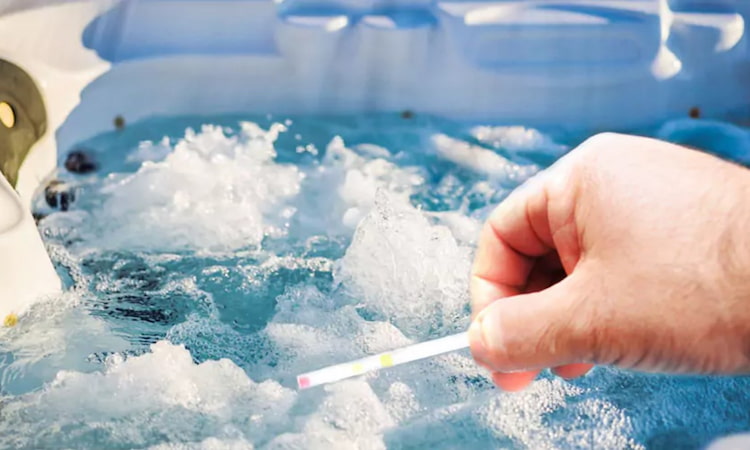
Quick Navigation
Is a Hot Tub With High Alkalinity Safe to Use?
Despite what you might think, soaking in a hot tub with high alkalinity levels isn’t without its risks. You might be drawn to the soothing warmth of the water, but the truth is, high alkalinity can pose a serious threat to your health.
This elevated pH level can lead to a number of problems, including skin and eye irritation. Over time, repeated exposure can lead to more serious conditions such as respiratory issues or infections.
Moreover, high alkalinity doesn’t just affect bathers. It can also damage your hot tub’s equipment. The high pH levels can cause scaling, which is a buildup of minerals on the hot tub’s surfaces and equipment. This scaling can clog filters, corrode metal parts, and damage the heater.
How High Alkalinity in Hot Tub Effects Your Health
High alkalinity’s impact on your health is not something you can afford to overlook. Prolonged exposure to high-alkalinity hot tub water can lead to certain health complications.
- Skin Irritation: High alkalinity makes the water hard. This may cause dry skin, itching, or even a rash. So, if you’ve been soaking in your hot tub and your skin feels uncomfortable, it’s likely due to high alkalinity.
- Eye Issues: The water’s high pH level, due to high alkalinity, can cause eye irritation. You might experience redness, itching, or burning sensations in your eyes.
- Respiratory Problems: Inhalation of steam from a high alkalinity hot tub can lead to respiratory issues such as coughing, wheezing, or shortness of breath.
- Hair Damage: High alkalinity can strip the natural oils from your hair, leaving it dry, brittle, and damaged.
How High Alkalinity Effects Your Hot Tub Water Chemistry
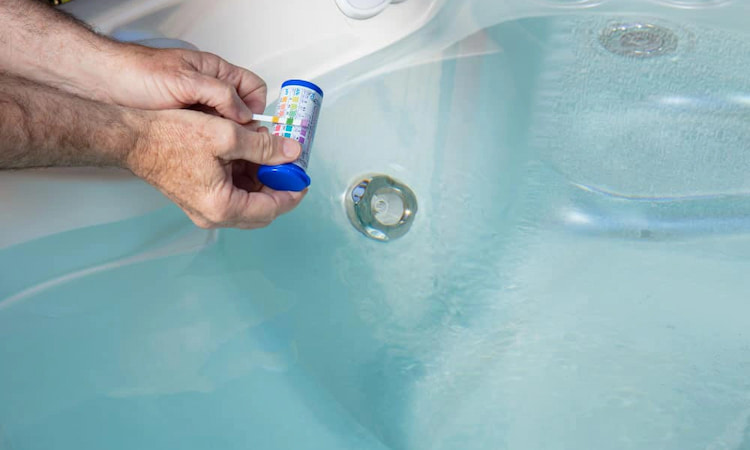
High alkalinity disturbs the balance of your hot tub water, making it hard to manage. It can cause scaling on the hot tub surface and plumbing, leading to significant damage over time.
When alkalinity is too high, it can cause your pH levels to rise too. This can lead to problems like cloudy water, which not only looks unappealing but might also block your filter, leading to inefficient performance. It also increases the chances of developing green or black algae, which can be a nightmare to clean.
High alkalinity can also reduce the effectiveness of your hot tub’s sanitizers. This means they won’t work as efficiently to keep your hot tub free from bacteria and other harmful microorganisms.
Consequently, it might cost you more chemicals and create an environment that’s not safe for you and your family.
How High Alkaline Water Effects Your Hot Tub and its Parts
In terms of your hot tub’s physical condition, let’s delve into how high alkalinity can detrimentally impact its functionality and longevity.
High alkaline water can lead to a number of problems that can shorten the lifespan of your tub and affect its performance.
- Scale Buildup: High alkalinity leads to scale, which is a hard, crusty deposit that forms on your hot tub’s surfaces and plumbing. This not only looks unsightly but can also clog your jets and reduce the efficiency of your heater.
- Equipment Damage: The scale buildup caused by high alkalinity doesn’t just affect your tub’s appearance – it can also harm your equipment. It can cause seals to leak, impede motor operation, and ultimately lead to equipment failure.
- Reduced Sanitizer Effectiveness: Alkaline water can reduce the effectiveness of your sanitizer, making your hot tub more prone to bacteria and algae growth. This can lead to murky water and unpleasant odors.
- Uncomfortable Water: High alkalinity can make your water feel slippery and your skin dry and itchy after soaking. It can also sting your eyes.
Frequently Asked Questions
You can lower high alkalinity in your hot tub by adding a pH decreaser according to the manufacturer’s instructions. It’s also crucial to regularly test and adjust the water to maintain a balanced chemical level.
Yes, high alkalinity can damage your hot tub’s filtration system. It leads to scale buildup and corrosion, reducing the system’s efficiency. It’s important to regularly balance the water to prevent such issues.
Yes, it’s potentially unsafe for children and the elderly to use a hot tub with high alkalinity. It may cause skin, and eye irritation, and other health problems. Always ensure balanced water conditions before use.
You should test your hot tub’s alkalinity level at least once a week. If usage is heavy, it’d be wise to check more frequently. Regular testing ensures balanced water, safeguarding your tub’s equipment and your health.
Yes, overexposure to high alkalinity levels in hot tub water can cause skin and eye irritation. You might notice dry, itchy skin, red eyes, and even hair damage. Always test the water regularly to ensure safety.
Conclusion
In conclusion, high alkalinity in your hot tub isn’t just bad for the tub, it’s harmful to your health too. It disrupts the water chemistry, harms your skin, and damages the tub itself.
So, it’s crucial to keep the alkalinity levels in check. Regular testing and timely adjustments will help maintain a safe and enjoyable hot tub experience. After all, your health and your hot tub’s longevity are worth that extra effort.

![What is a Stabilizer in a Hot Tub? [Types of Stabilizers] what is a stabilizer in hot tubs and how does it work](https://hottubtales.com/wp-content/uploads/2023/10/what-is-a-stabilizer-in-hot-tubs-and-how-does-it-work-250x150.jpg)
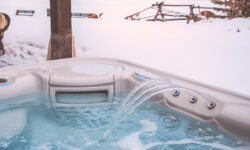
![How to Lower Bromine Level in Hot Tub? [& Signs of High Levels] how to lower bromine level in hot tub](https://hottubtales.com/wp-content/uploads/2023/10/how-to-lower-bromine-level-in-hot-tub.jpg)
